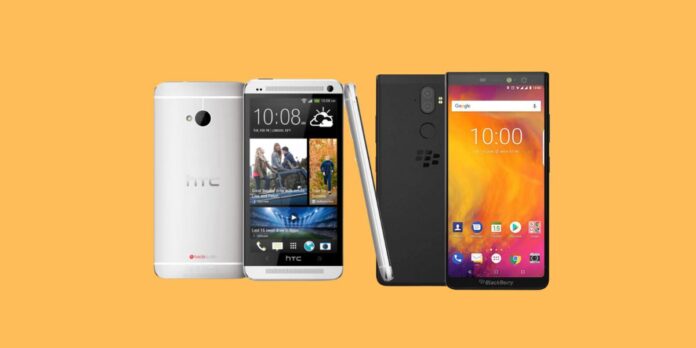Not too long ago, brands like HTC, Motorola, Nokia, BlackBerry, and Lenovo were at the top of the smartphone industry. These companies dominated the market with innovative designs, strong brand loyalty, and cutting-edge technology. However, today, they are either extinct, struggling to stay relevant, or barely making an impact. What went wrong? Can they recover? And what lessons can other smartphone brands learn from their decline?
HTC: The Rise and Fall of a Pioneer
HTC was once a leader in the smartphone industry, being among the first to adopt Android and push for premium build quality. The HTC One series was widely praised for its design and user experience. However, poor marketing, slow innovation, and fierce competition from Samsung and Apple led to its decline. Google eventually acquired part of HTC’s smartphone division, signaling its exit from the mainstream market.
Motorola: A Brand That Keeps Coming Back
Motorola revolutionized the industry with its RAZR flip phones and later became an Android pioneer. Google acquired Motorola in 2012 but sold it to Lenovo just two years later. Under Lenovo’s ownership, Motorola has struggled to regain its dominance, though it still releases mid-range and foldable phones. However, it no longer competes at the highest level like it once did.
Nokia: The Giant That Fell Hard
Nokia was once the undisputed leader in mobile phones. Its devices were known for durability, battery life, and simplicity. However, the company failed to adapt to the rise of Android and stuck with Windows Phone, which never gained mass adoption. Although Nokia (under HMD Global) is still making smartphones today, it has been reduced to a niche brand focusing on budget and mid-range devices.
BlackBerry: The Business King That Faded
BlackBerry phones were once the ultimate business tool, thanks to their physical keyboards and secure email services. However, the rise of touchscreen smartphones and the lack of innovation led to its decline. BlackBerry attempted a comeback with Android-powered devices, but it was too late. In 2022, BlackBerry officially shut down its mobile services, marking the end of an era.
Lenovo: A Silent Player in the Smartphone Market
Lenovo is a massive technology company, known for its dominance in laptops and PCs. However, in the smartphone industry, it has struggled to gain the same recognition. Lenovo’s phones, especially in China and India, have seen moderate success, but they lack the global presence of brands like Samsung, Apple, or even Xiaomi. Despite owning Motorola, Lenovo has not been able to create a smartphone brand that competes at the top.
Lessons to Learn
- Adapt or Perish – Companies like Nokia and BlackBerry failed to adapt to changing market trends, which led to their downfall. Brands that resist innovation risk becoming irrelevant.
- Strong Marketing Matters – HTC had great products, but poor marketing meant they couldn’t compete with bigger brands like Samsung and Apple. Even a great product needs the right promotion to succeed.
- Software is Just as Important as Hardware – Nokia’s reliance on Windows Phone instead of Android was a costly mistake. The success of modern smartphones depends as much on software ecosystem as on hardware quality.
- Consistency is Key – Brands like Samsung and Apple have remained dominant by consistently delivering new features and improved devices. Companies that release inconsistent products or lose focus struggle to maintain a strong user base.
Can These Brands Make a Comeback?
While most of these brands still exist in some form, making a major comeback will be extremely difficult. The smartphone industry is now dominated by a few major players, and breaking into that space requires massive investments, continuous innovation, and strong marketing strategies.
Motorola and Lenovo still have the potential to grow, but they need to create devices that truly stand out. Nokia, under HMD Global, has a loyal fan base, but it needs flagship-level innovation to compete at the highest level. Unfortunately, for BlackBerry and HTC, a return to dominance seems almost impossible.
The decline of HTC, Motorola, Nokia, BlackBerry, and Lenovo serves as a warning to all smartphone brands: staying relevant in the industry requires constant innovation, smart marketing, and adapting to changing consumer preferences. While some of these brands may never return to their former glory, they still have the potential to carve out a niche in the evolving smartphone market
